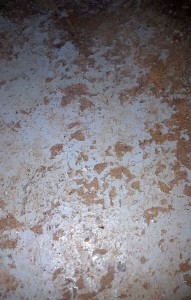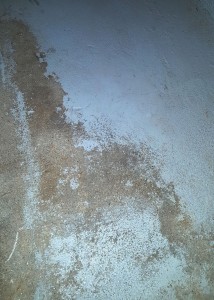I have the same type of coating on my garage floor and in my basement. In the basement, it is chipping and peeling very badly. In the garage most of it has worn away.
I've tested the basement and garage floors with two different lead test kits, and both came up negative. I'm still nervous that this could be lead paint, can you guys tell by looking what type of paint it might be, or if it is an epoxy coating?
My house was built in different parts. The main part of the house is 1920's or 1930's. The garage was a later addition, Maybe in the 1970's. After looking around, I'm starting to think this is an epoxy coating on the floor, and not a water or oil based paint.
Also, how would you go about cleaning up a basement with this type of paint chipping and peeling everywhere, in addition to the floor just being very dirty?
Here are some thumbnails that you can click on to make the images bigger. Basement on the left, garage on the right.


I've tested the basement and garage floors with two different lead test kits, and both came up negative. I'm still nervous that this could be lead paint, can you guys tell by looking what type of paint it might be, or if it is an epoxy coating?
My house was built in different parts. The main part of the house is 1920's or 1930's. The garage was a later addition, Maybe in the 1970's. After looking around, I'm starting to think this is an epoxy coating on the floor, and not a water or oil based paint.
Also, how would you go about cleaning up a basement with this type of paint chipping and peeling everywhere, in addition to the floor just being very dirty?
Here are some thumbnails that you can click on to make the images bigger. Basement on the left, garage on the right.




